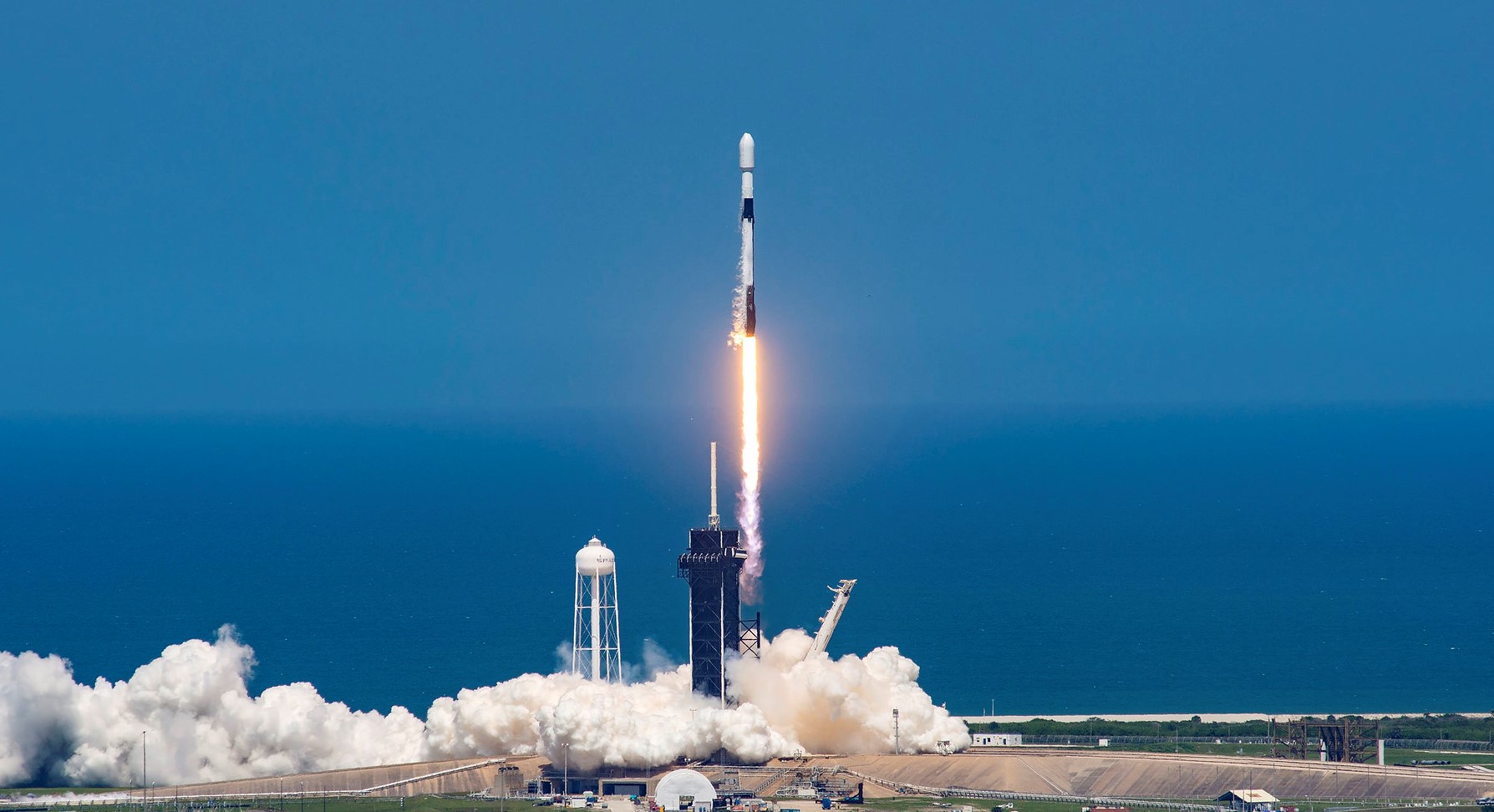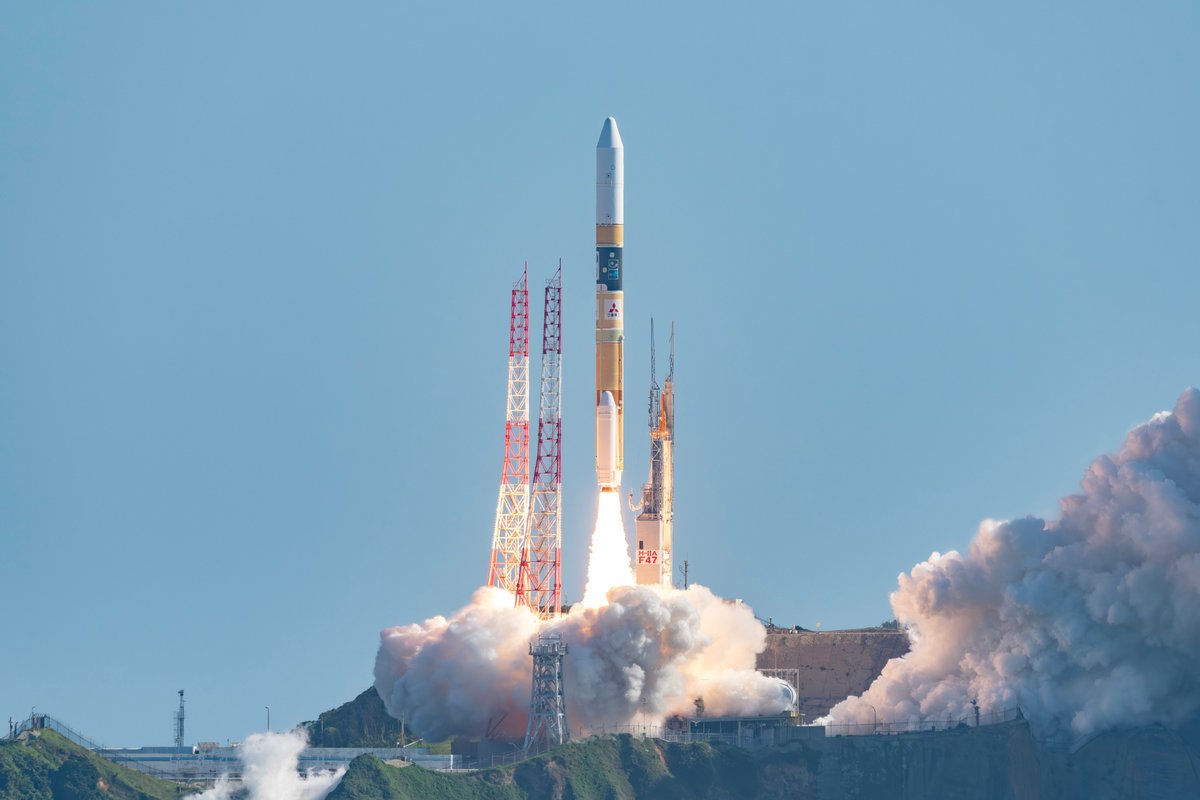· space brief · 4 min read
Space Brief 15 Apr 2025
Today's Space Brief covers Blue Origin's historic all-female spaceflight, the selection of companies for nuclear microreactor development by DIU, and NATO's adoption of AI technology for military planning.

📄Top Stories
Today marks significant milestones in space exploration and defense innovation. Blue Origin has successfully launched the first all-female spaceflight, making history with a diverse and inspiring crew. Meanwhile, the Department of Defense’s Innovation Unit (DIU) has chosen companies to develop compact nuclear reactors, essential for stationing power at remote bases. NATO strengthens its military planning with Palantir’s cutting-edge AI technology.
📰Detailed Coverage
Blue Origin’s Historic All-Female Spaceflight
Blue Origin has launched its first all-female crew on a suborbital flight aboard the New Shepard rocket. The mission, dubbed NS-31, included pop icon Katy Perry alongside journalist Gayle King and four other esteemed women. This landmark event highlights both technological achievement and gender equality advancements in space exploration, providing inspiration for future generations.
The New Shepard touched the edge of space, enabling the crew to experience weightlessness and view Earth from the vast darkness of space. This mission not only marks a scientific triumph but also a cultural milestone, broadening participation in space endeavors.
Read the full story: Space.com
DIU Selects Companies for Nuclear Microreactors
The Department of Defense’s Innovation Unit (DIU) has selected eight companies to develop nuclear microreactors, aiming to power U.S. military bases without dependency on conventional supply chains. The project addresses a critical need for reliable, portable energy sources, ensuring that military operations abroad can maintain sustainable power infrastructures.
Nuclear microreactors offer a promising solution for energy resilience and self-sufficiency. This strategic initiative reflects growing defense sector trends towards innovation and autonomy, aligned with broader security objectives.
Read the full story: Breaking Defense
NATO Enhances Military Planning with AI
NATO has adopted Palantir’s Maven AI to bolster its military planning capabilities, amidst ongoing trans-Atlantic tensions. The AI system will facilitate rapid data analysis and strategic decision-making, enhancing interoperability among NATO members and improving operational effectiveness.
The use of advanced AI technology in military settings signifies a commitment to leveraging cutting-edge tools in defense strategies. This integration underscores the ongoing digital transformation within military domains, bringing enhanced situational awareness and predictive planning capabilities.
Read the full story: Breaking Defense
🛰️Satellite Spotlight
- Satellite Name: METOP-C
- NORAD ID: 43689
- Launch Date: 2018 Nov 7
- Mission: Meteorology
- Orbit: Inclination 98.6782°, Period 14.2151 rev/day, Eccentricity 0.0000562
- Operator: EUMETSAT
- Fun Fact: METOP-C is part of the European space organization’s contribution to a joint European-US system dedicated to monitoring changes in the world’s atmosphere, ocean, and land surfaces.
Current TLE Data:
1 43689U 18087A 25105.10774017 .00000298 00000+0 15590-3 0 9995
2 43689 98.6782 166.1789 0000562 21.7833 338.3368 14.21513288334017Track this satellite in real-time on our web app: Track METOP-C
🚀Upcoming Space Launches
April 16
- Northrop Grumman Space Systems Minotaur IV:
- NROL-174 from Vandenberg Space Force Base (19:00 UTC) Classified payload for the U.S. National Reconnaissance Office.
April 18
- Firefly Aerospace Alpha:
- FLTA006 (Message in a Booster) from Vandenberg Space Force Base (13:37 UTC) Sixth flight of the Firefly Alpha small satellite launcher, launching a demonstration mission for Lockheed Martin’s new LM400 satellite bus with a communications payload.
April 19
- SpaceX Falcon 9:
- NROL-145 from Vandenberg Space Force Base (10:41 UTC) Tenth batch of satellites for a reconnaissance satellite constellation for the National Reconnaissance Office.
April 21
- SpaceX Falcon 9:
- Dragon CRS-2 SpX-32 from Kennedy Space Center (08:15 UTC) 32nd commercial resupply services mission to the International Space Station. The mission will deliver supplies and payloads, supporting science and research investigations onboard the orbiting laboratory.
April 25
- SpaceX Falcon 9:
- Starlink Group 6-74 from Cape Canaveral Space Force Station (01:32 UTC) A batch of satellites for the Starlink mega-constellation, SpaceX’s project for space-based Internet communication system.
April 29
- Arianespace Vega-C:
- Biomass from Guiana Space Centre (09:15 UTC) The Biomass mission is designed to measure the density of carbon stored in the world’s forests for the European Space Agency.
April 30
-
United Launch Alliance Atlas V 551:
- Project Kuiper (KA-01) from Cape Canaveral Space Force Station (00:00 UTC) Project Kuiper is a mega constellation designed to offer broadband internet access, managed by Kuiper Systems LLC, a subsidiary of Amazon.
-
Gilmour Space Technologies Eris-1:
- Maiden Flight from Bowen Orbital Spaceport (00:00 UTC) Maiden flight of Gilmour Space’s orbital launch vehicle Eris.
-
SpaceX Falcon 9:
- Bandwagon 3 (Dedicated Mid-Inclination Rideshare) from Cape Canaveral Space Force Station (00:00 UTC) Dedicated rideshare flight carrying dozens of small microsatellites and nanosatellites for commercial and government customers.
Note: Launch dates and times are subject to change due to technical or weather considerations.

Maurice Stellarski




